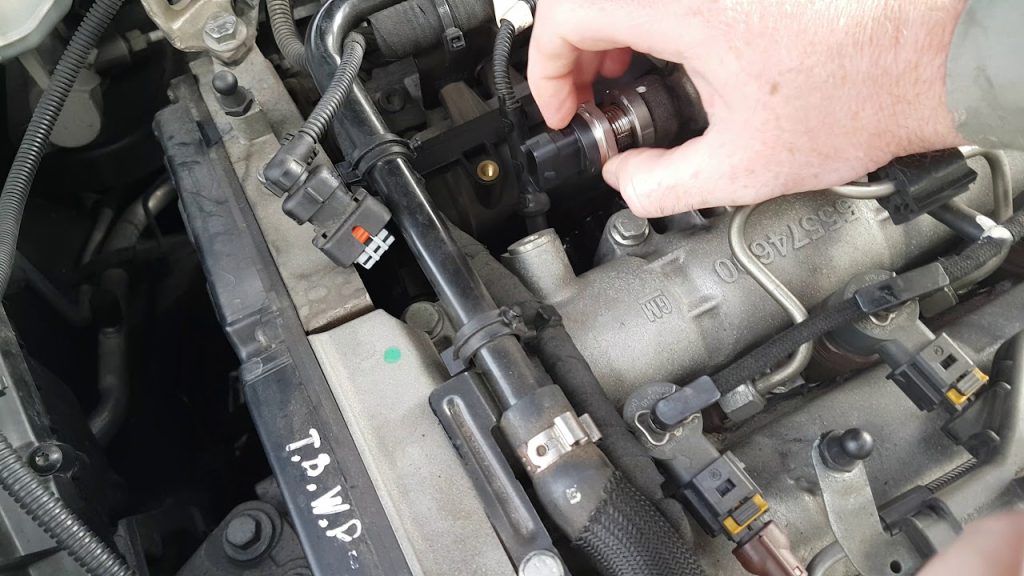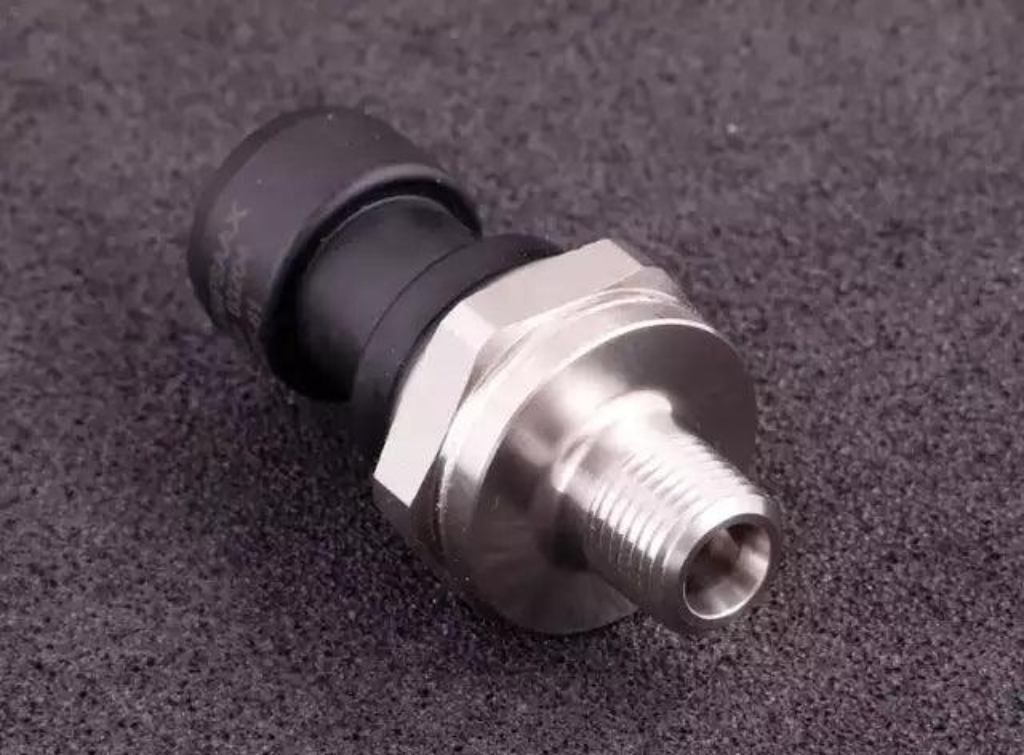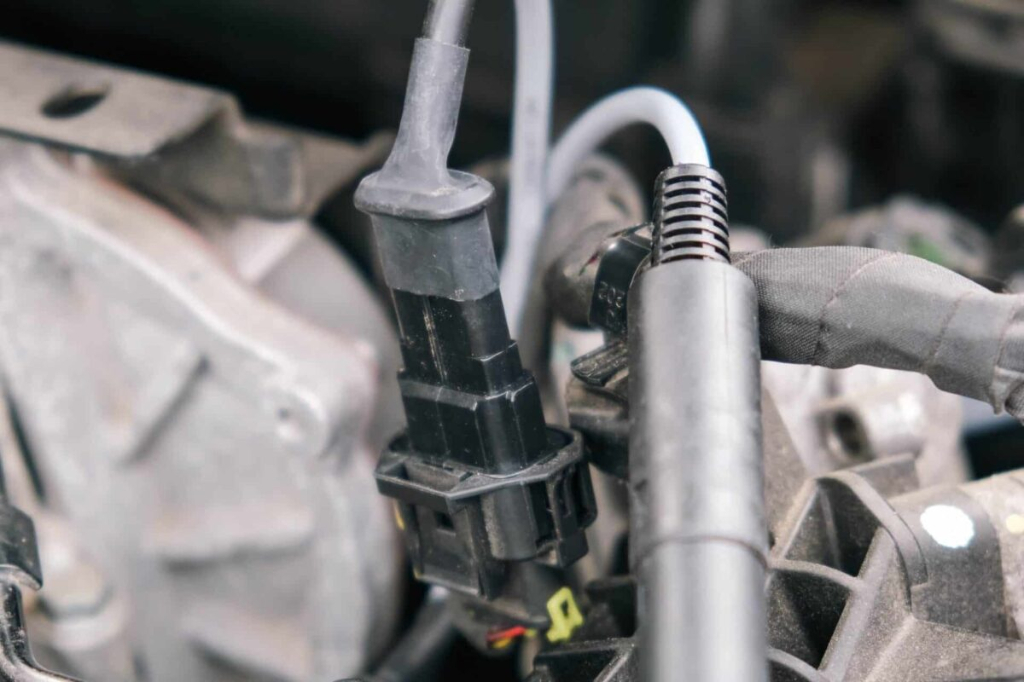When it comes to keeping your engine running smoothly, there’s one unsung hero that often goes unnoticed: the fuel pressure sensor. You might think, “Hey, the engine’s running just fine, so what does a little sensor do?” Well, that little sensor could be the difference between your car purring like a kitten or choking like a smoker on a cold morning. Buckle up, because we’re about to take a deep dive into why fuel pressure sensors are not just important—they’re absolutely crucial for the health of your engine.
The Basics of Fuel Pressure Sensors: Not Just an Afterthought
Before we get into the nitty-gritty of why this component is so vital, let’s break down what a fuel pressure sensor actually does. These little devices are responsible for constantly monitoring the fuel pressure in your vehicle’s fuel system. They measure the fuel pressure within the fuel rail or line and communicate this information to your vehicle’s engine control unit (ECU). Think of them as the blood pressure monitor for your engine. If the pressure is too low or too high, the sensor sends a signal to the ECU, allowing it to make adjustments to ensure everything runs smoothly.
But don’t be fooled into thinking these sensors are just part of the background noise. These tiny devices are integral to your engine’s performance and longevity.

Why Fuel Pressure Matters: The Heartbeat of Your Engine
Let’s face it: fuel is the lifeblood of your engine. And much like how your body requires a steady flow of blood to function, your engine needs an optimal flow of fuel pressure to keep running at its peak. If the pressure is too low, the engine won’t get the fuel it needs to run efficiently, leading to stalling, misfires, and an overall drop in performance. Too high, and you risk damaging fuel injectors, clogging the system, and causing all kinds of havoc under the hood.
A fuel pressure sensor keeps your fuel system operating within the perfect pressure range. Without it, your engine would be flying blind, hoping for the best but getting worse by the minute. It’s like trying to drive with your eyes closed. Sure, you can go forward, but good luck getting anywhere without trouble.
How Fuel Pressure Sensors Affect Engine Performance
The importance of fuel pressure sensors goes beyond just sending a reading to your ECU. These sensors actually play a significant role in the tuning of your engine. Here’s how:
1. Optimized Fuel Efficiency
Fuel pressure sensors are like a thermostat for your car’s fuel system. They help the ECU adjust fuel delivery, ensuring the correct air-fuel mixture reaches the engine. This translates directly to better fuel efficiency. If the fuel pressure is too high, your engine may run rich, burning more fuel than necessary. Too low, and you could be looking at a lean mixture that leads to poor combustion. The sensor helps the ECU strike the perfect balance, ensuring your car doesn’t guzzle fuel unnecessarily while also maintaining optimal performance.
2. Preventing Engine Misfires
Misfires are one of those pesky problems that can leave you stranded on the side of the road, or worse—cost you a hefty repair bill. A malfunctioning fuel pressure sensor can throw off the balance of fuel delivery, leading to misfires. Whether it’s due to low fuel pressure or an overly rich fuel mixture, the engine will struggle to ignite the fuel, causing it to sputter, shake, or just flat-out fail. A properly functioning fuel pressure sensor makes sure this doesn’t happen, keeping the ignition smooth and steady.
3. Reducing Emissions
Did you know that a properly functioning fuel pressure sensor could even help save the environment? If the fuel pressure sensor detects that your engine is running too rich (i.e., burning more fuel than needed), it signals the ECU to make adjustments, improving fuel combustion and, in turn, reducing harmful exhaust emissions. This means you’re not only saving money at the pump, but you’re also doing your part to keep your car from polluting the atmosphere. It’s a win-win!
4. Preventing Damage to Engine Components
Imagine a world where your fuel injectors are constantly being exposed to high pressure. Eventually, these sensitive components will start to wear down, leading to leaks, clogs, and catastrophic failure. The fuel pressure sensor is your first line of defense. By keeping the pressure within safe levels, it helps protect expensive engine components and ensures that your car stays on the road longer.

The Risks of Ignoring Fuel Pressure Sensor Malfunctions
Ignoring a faulty fuel pressure sensor is like ignoring a check engine light—bad idea. Here’s a quick rundown of the potential risks:
1. Poor Performance
As we mentioned earlier, a malfunctioning fuel pressure sensor can throw off the balance of fuel delivery to your engine. This means you might experience poor acceleration, rough idling, or a noticeable drop in power. Your engine could also struggle to maintain consistent speeds, making your driving experience unpredictable and frustrating.
2. Increased Fuel Consumption
If your sensor is out of whack, your engine might be forced to run on a mixture that’s either too rich or too lean. Both scenarios can lead to inefficient fuel use, meaning you’ll be making more frequent trips to the gas station. Over time, this not only impacts your wallet but also the overall performance of your engine.
3. Risk of Severe Engine Damage
Over time, ignoring a faulty fuel pressure sensor can lead to more severe issues, such as engine misfires, clogged fuel injectors, and even damage to the fuel pump. These issues can be expensive to repair and may require major engine work, leaving you with a hefty bill and a car that’s out of commission for a while.
4. Triggering Other Warning Lights
A malfunctioning fuel pressure sensor can sometimes trigger other warning lights on your dashboard, like the check engine light or the service vehicle soon light. This is usually a sign that something’s wrong, and if you ignore it, you could be setting yourself up for a whole host of other problems.
How to Tell if Your Fuel Pressure Sensor Needs Attention
Now that we’ve covered why fuel pressure sensors are so important, let’s talk about how you can spot a malfunction. While it’s always best to consult a professional mechanic, there are a few telltale signs you should watch for:
- Rough idling or stalling: If your engine is having trouble idling smoothly, or it stalls unexpectedly, your fuel pressure sensor could be the culprit.
- Increased fuel consumption: Noticing that you’re filling up your tank more often than usual? A bad sensor might be causing inefficient fuel delivery.
- Erratic engine performance: If your car accelerates unpredictably or experiences sudden power loss, the fuel pressure sensor could be to blame.
- Check engine light: Of course, the infamous check engine lightcould indicate many problems, but if it’s accompanied by any of the symptoms above, it might be your fuel pressure sensor needing attention.

Conclusion: Fuel Pressure Sensors Are a Must-Have
Fuel pressure sensors aren’t just a small detail in the complex machinery that is your engine—they are vital to its operation. From optimizing fuel efficiency to preventing catastrophic damage, these little sensors are critical for maintaining the health of your engine. So, if you’ve been thinking about ignoring that pesky check engine light or putting off repairs, think again. Your engine—and your wallet—will thank you.
Remember, your car is an intricate system that works best when all parts are functioning properly. Keep an eye on your fuel pressure sensor, and it will keep your engine running smoothly for the long haul.
At QPLCAR.com, we offer a wide range of high-quality fuel pressure sensors to ensure that your engine stays in peak condition. Don’t let a small issue snowball into a big problem—check out our carefully selected, reliable products that can help keep your engine running smoothly and efficiently.
 >
>